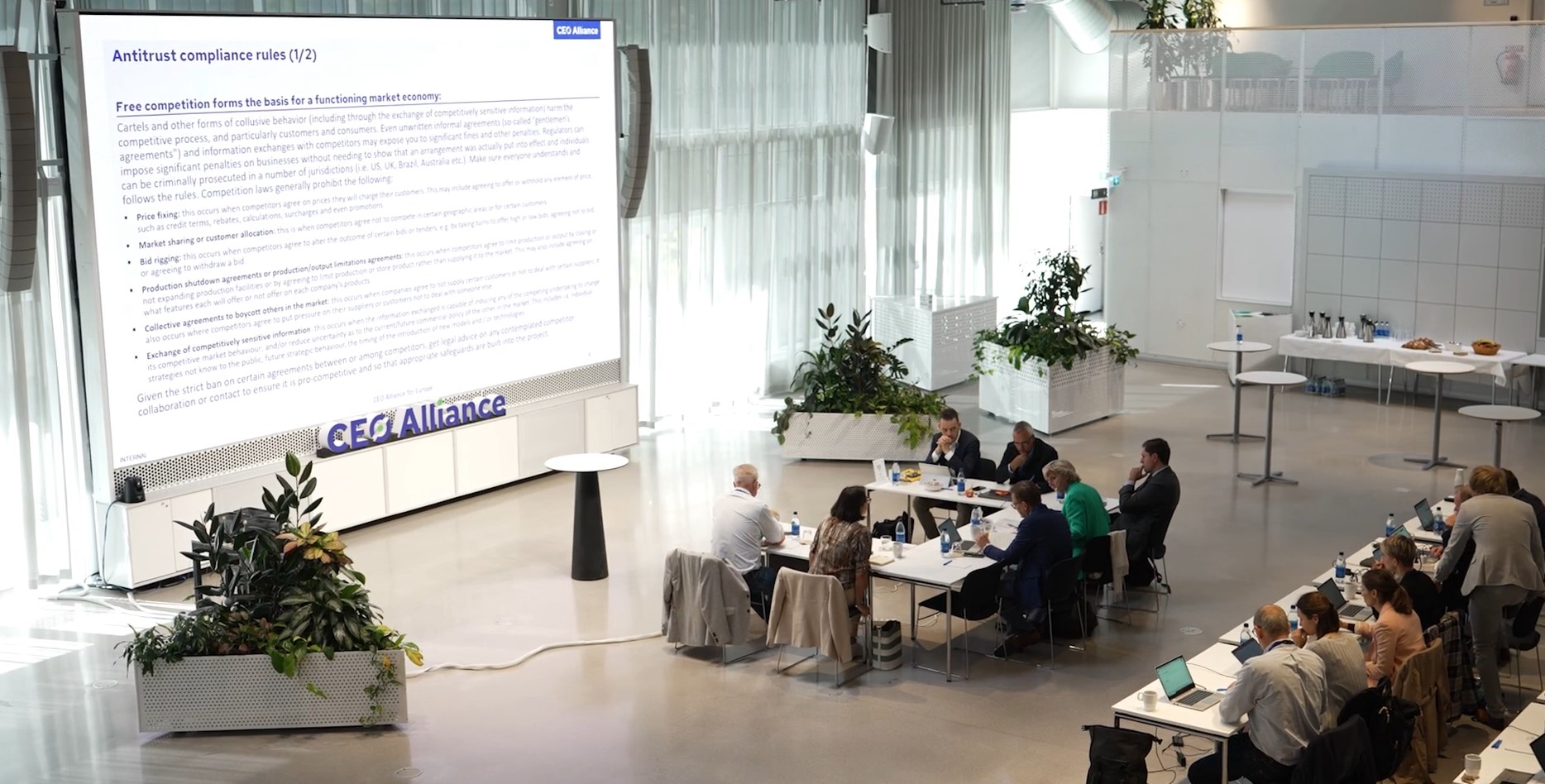Learning from the crisis to unlock chances for the future
We, the CEO Initiative for Europe’s Recovery, Reform and Resilience, represent multinational companies across different sectors that employ a total of 1.7 million people generating more than 600 billion euros in revenue. Our companies are staying committed to the Paris Climate Change Agreement and have adopted own decarbonisation plans.
While Europe is facing an unprecedented challenge by the disruptions of the Covid-19 pandemic, we stand ready to strongly support the EU Commission’s “Next Generation EU” to kick start the economies in short term, but also prepare for the longer-term transformation to build a more resilient, digitalized, prosperous and sustainable Europe for future generations.
Core principles for a sustainable recovery and the longer term transformation of European industries
Therefore, the following set of principles should guide EU choices in politics:
- Prioritize measures that have immediate positive effects on employment, contribute to sustainable development and are in line with the environmental targets of the European Green Deal for 2030 and 2050
- Remove existing barriers to private sector investments in low carbon and zero emission technologies, renewable energies, energy efficiency and circularity
- Foster fiscal reforms and a holistic CO2-pricing system that introduce ambitious carbon pricing and as a central element of a future system, sending an effective price signal to the market while ensuring a socially just transition for European citizens and reaching targeted emission reduction
- Drive demand for sustainable, innovative and digital solutions, among other by using renewal schemes, public procurement and investments and by increasing EU-level standardization.
- Embrace digital technologies and sustainable finance as enabler for the transition towards a zero carbon and circular economy
- Push for transparency around the sustainability of EU initiatives as well as corporate products and supply chains
Our contribution
We are ready to contribute our share to achieve the goals of the European Green Deal.
In line with our business models, experience and commitments, we have identified the following action areas of the European Green Deal, enabled by digitalization, where we would be pleased to contribute with constructive proposals in order to make it a success:
- Decarbonisation and carbon pricing
- Low carbon and zero emission innovations
- Circular economy
- Sustainable finance
- For these action areas, we will elaborate specific recommendations that enable a business case for our companies’ contribution on decarbonisation, sustainable growth and creating future-proof jobs.
Specific recommendations
We believe that that the Green Deal must be based on a smart industrial policy framework that drives structural change and is coupled with enabling conditions for an industrial transformation. With regard to two core principles above, we suggest the following:
Fiscal reforms and a holistic CO2-pricing system
- A predictably growing minimum floor price and appropriate development of the EU-ETS to cover all sectors should be considered, maintaining competitiveness of European companies.
- Revenues from the ETS (and national environmental taxes) should be channeled towards sustainable innovation and industrial decarbonisation – in this context we welcome the EU innovation fund.
- While price signals for CO2 should primarily be triggered by the ETS, a reform of energy taxation and its directive should take the climate impact of all energy carriers into account to ensure decarbonisation of the energy market
Sustainable, innovative and digital solutions
- A rapid expansion of renewables capacities is needed as the base for the transformation of all industries
- With regard to fostering cost-efficient electrification, it is important to empower smart electricity grids, boost electric vehicle charging infrastructure development
- With regard to sector coupling, scaling the low carbon process technologies, sustainable hydrogen and sustainable fuels are needed. Alternative fuels are a key enabler for the decarbonisation e.g. of aviation, and some industrial processes. A revision of the alternative fuels strategy needs to focus on aligning initiatives EU-wide and enabling the scale-up of already existing and future solutions.
Enabling the successful implementation of the new Circular Economy Action Plan requires to promote innovation in different forms of recycling by creating a level playing field and maintaining a technology-neutral definition of recycling.
Signatories as of June 29, 2020
- Björn Rosengren, ABB
- Thierry Vanlancker, AkzoNobel
- Francesco Starace, ENEL
- Dr. Johannes Teyssen, E.ON
- José Ignacio Sánchez Galán, Iberdrola
- Søren Skou, Mærsk
- Christian Klein, SAP
- Henrik Henriksson, Scania
- Jean-Pascal Tricoire, Schneider
- Joe Kaeser, Siemens
- Dr. Herbert Diess, Volkswagen
Source: Volkswagen AG


